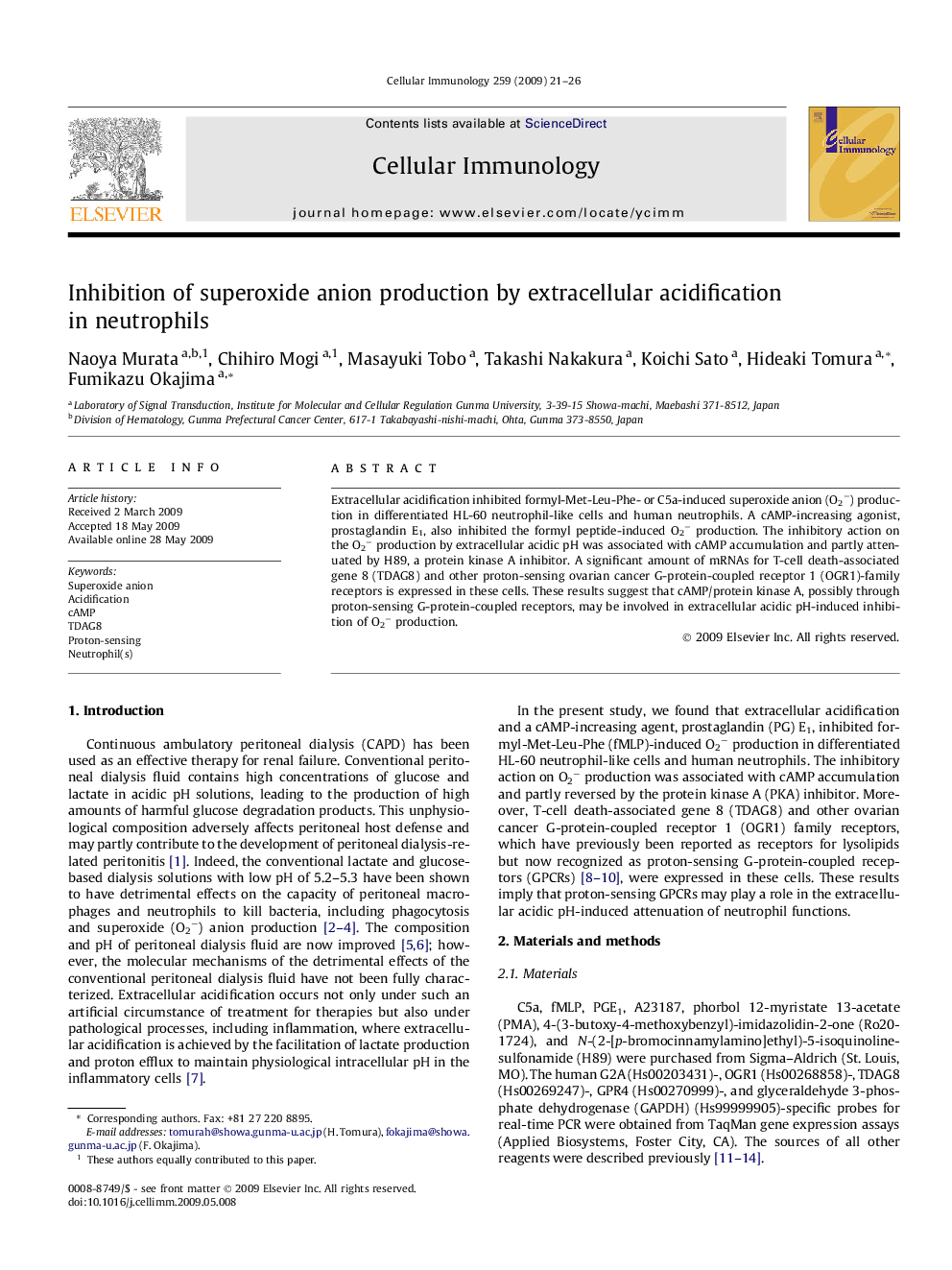| Article ID | Journal | Published Year | Pages | File Type |
|---|---|---|---|---|
| 2167755 | Cellular Immunology | 2009 | 6 Pages |
Extracellular acidification inhibited formyl-Met-Leu-Phe- or C5a-induced superoxide anion (O2−) production in differentiated HL-60 neutrophil-like cells and human neutrophils. A cAMP-increasing agonist, prostaglandin E1, also inhibited the formyl peptide-induced O2− production. The inhibitory action on the O2− production by extracellular acidic pH was associated with cAMP accumulation and partly attenuated by H89, a protein kinase A inhibitor. A significant amount of mRNAs for T-cell death-associated gene 8 (TDAG8) and other proton-sensing ovarian cancer G-protein-coupled receptor 1 (OGR1)-family receptors is expressed in these cells. These results suggest that cAMP/protein kinase A, possibly through proton-sensing G-protein-coupled receptors, may be involved in extracellular acidic pH-induced inhibition of O2− production.
